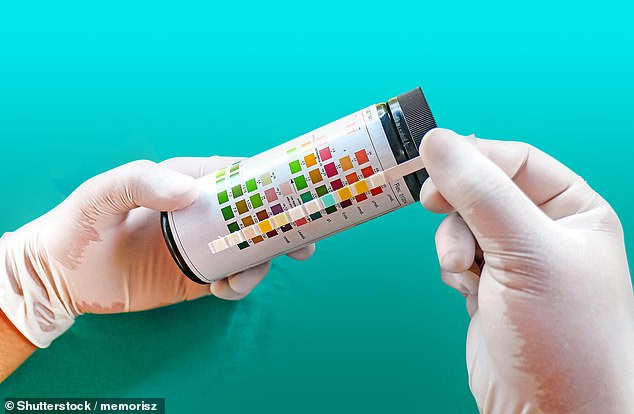Doctors discover therapy for lethal kidney disease in children caused by food poisoning
- Eculizumab could protect children against kidney failure caused by food poisoning
British doctors have discovered a drug that protects children from potentially fatal kidney failure caused by food poisoning.
Eculizumab, which is already approved by the NHS to treat a rare genetic blood disorder, could also be used to save sick young people from dialysis, transplants and even death, experts claim.
The most common cause of kidney failure in children is Shiga toxin-producing E. coli (STEC) – a bacterial infection picked up through contaminated food. Symptoms can range from mild cramps to bloody diarrhea and vomiting.
In one in ten cases, STEC enters the bloodstream through the intestines, causing damaged blood vessels to form clots in the kidneys. This is known as hemolytic uremic syndrome (STEC-HUS).
The condition is especially devastating in young children, with five percent of affected children under the age of ten developing lifelong kidney failure or dying.

Doctors fail to spot the signs of painful urinary tract infections in children, putting them at risk of kidney and bladder damage, experts warn
Now an analysis funded by the Medical Research Council and Kidney Research UK, and led by scientists at the University of Bristol, has revealed how Shiga toxin damages the kidneys by attacking filter cells in organs called podocytes. The team also found in laboratory animals that eculizumab stopped this process.
The drug, sold as Soliris, is now used to treat paroxysmal nocturnal hemoglobinuria – a genetic condition in which the immune system damages red blood cells, which play a crucial role in kidney function.
Richard Coward, professor of renal medicine at the University of Bristol, consultant pediatric nephrologist at the Bristol Royal Hospital for Sick Children and one of the lead authors of the study, said: ‘As a pediatric renal specialist, one of the most difficult and devastating diseases we have to treat is STEC -HUS, which causes kidney failure and death. We have now discovered that a cell in the kidney called the podocyte is an important target cell for Shiga toxin – and that it can be treated.’
Dr. Aisling McMahon, executive director of research and policy at Kidney Research UK, added: ‘This study shows that STEC-HUS can be stopped using a drug that is already in clinical use.’
The next steps for researchers are to understand how quickly to administer eculizumab in STEC-HUC cases and to conduct studies in at-risk children.
